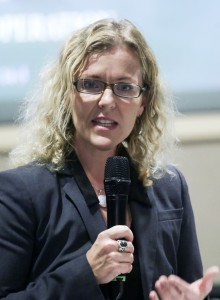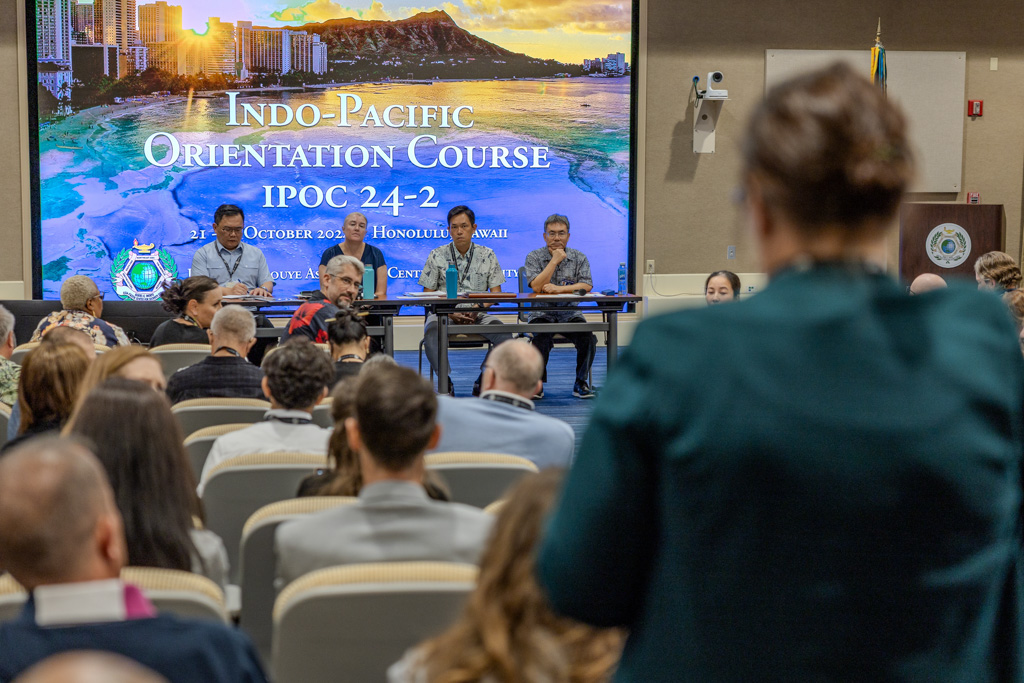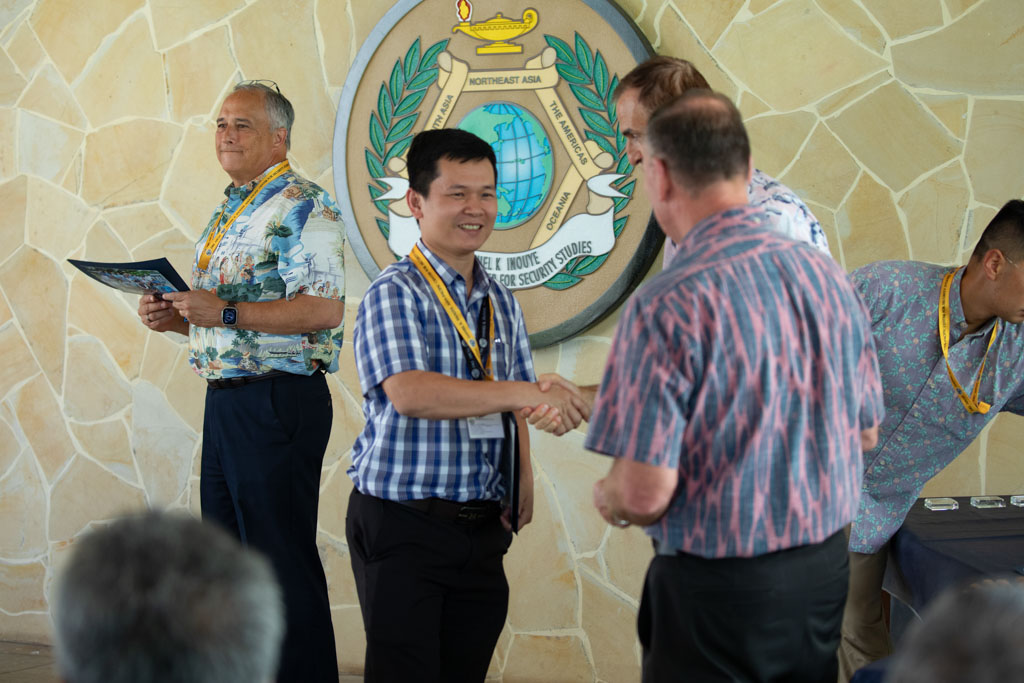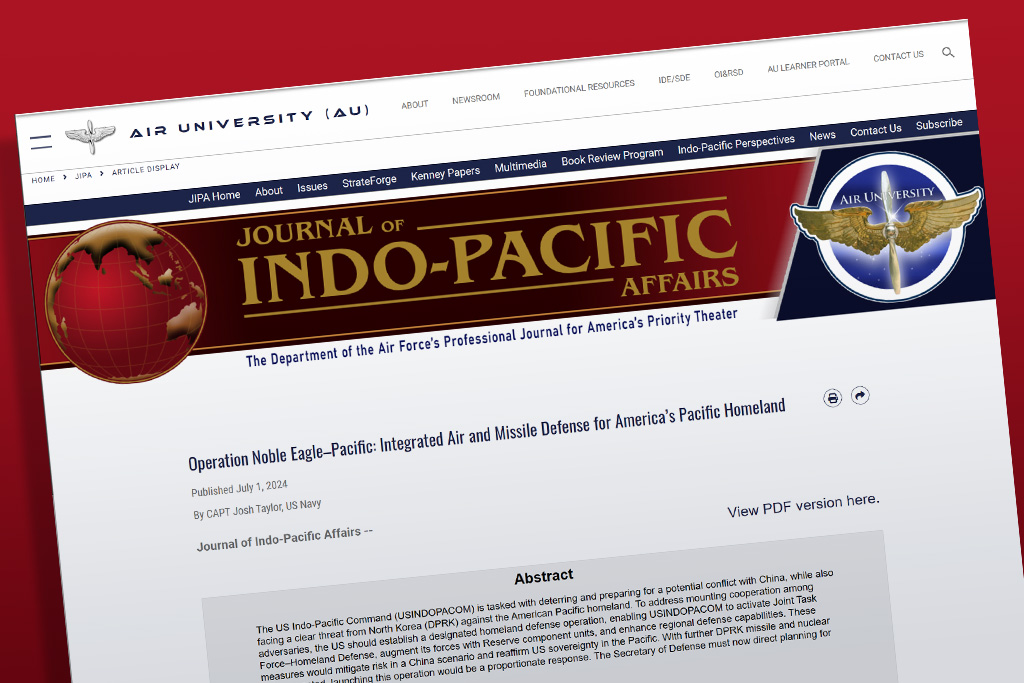
APCSS Prof. Kerry Nankivell, ASC 14-3 Course Manager, delivers a speech at the commencement ceremony.
Thank you for joining us this morning to recognize the achievements of the 109 fellows of Advanced Security Cooperation 14-3. It has been my distinct privilege to have been part of this conversation with this accomplished group of professionals. It is my genuine pleasure to welcome you to today’s recognition of their hard work and their dedication to advancing security cooperation in the Asia Pacific. They came from 34 places around the world: from Pakistan in the West and Colombia to the East, and almost everywhere in between. ASC is a fast-paced program that asks them to stay engaged and open for dialogue for 8 hours every day. We ask them to not only unpack challenges that face the region, but to explore feasible and realistic ways ahead. These fellows were up to our challenge. In five weeks, they achieved every learning objective that we set before them. They completed four in-class exercises as well as an ASC Fellows Project. They plowed through hundreds of powerpoint slides, hours of collaborative discussion, and many days of homework, preparation and self-reflection. Most of this work was not done by themselves, but, much more difficult, in small groups in which various languages, cultural assumptions, organizational backgrounds, and levels of expertise were represented. With their Fellows Project, each one of these fellows was challenged first to better understand a practical challenge in his or her workplace and second, to make actionable recommendations with respect to that challenge. They were supported in this work by the mentorship of APCSS faculty, but also by Senior Mentors and guest speakers from APCSS’ Executive Staff, as well as from PACOM, PACAF, U.S. Department of State, USARPAC, Joint Interagency Task Force West, the East West Center and distinguished APCSS Alumni who connected from far away.
But no description of the curriculum really explains what the ASC experience at APCSS is really about, although it does give you some idea of the effort expended on it by APCSS and our friends and colleagues around O’ahu. It is said that we live in a global village. We hear this said, but few have lived it the way that these fellows have lived it for the last five weeks. For a few short weeks out of a long career, the accomplished security practitioners of the ASC are offered a unique chance to live in this global village. This experience is as special as it is brief. Tomorrow we will all return to the daily press of real life, back to an office where the idea of the global village is not a reality, but a tired cliché. But for the five weeks of Advanced Security Cooperation, the global village is tangible, sometimes frustrating, but real. It has an address in Waikiki; it has a civic purpose of deepened understanding; it has shared cultural norms of transparency, inclusion and mutual respect; it has a Governor in General Dan Leaf and a mayor in Mr. Tom Patykula. The Advanced Security Cooperation course is APCSS’ proof that the global forces that impact the daily work of security practitioners around our region need not remain unseen or poorly understood. Through ASC, the international forces that influence our daily work are given a name, a face and most importantly, given a voice to explain themselves, in their own words.









Leave A Comment